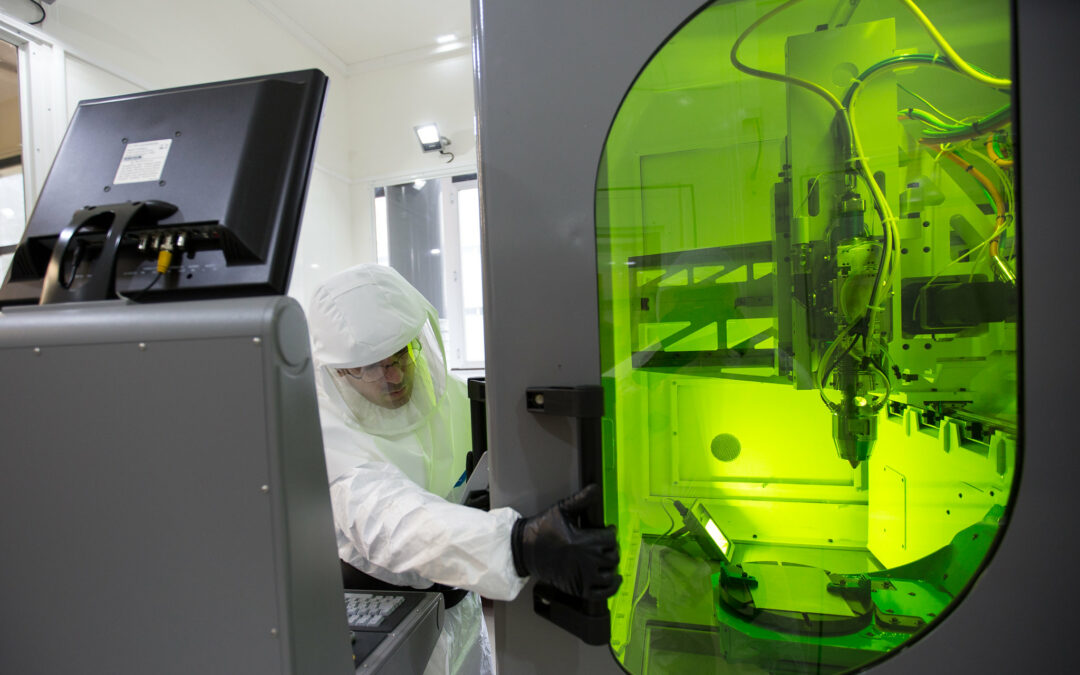Industry 4.0, or the fourth industrial revolution, has metamorphosed the global manufacturing landscape. In a world where technology shapes our daily lives, industry is not left behind. It’s a revolution that is redefining the way companies produce, connect and innovate. In this article, we explore this major digital transformation in detail. From the historical evolution of the industry to an understanding of key technologies such as augmented reality, the Internet of Things and artificial intelligence, you’ll discover how Industry 4.0 is improving productivity, reducing costs and opening up new opportunities for businesses. Get ready to dive into a world where efficiency, personalization and innovation come together to shape the future of industry.
Understanding Industry 4.0: the digital revolution in manufacturing
Industry 4.0, an industrial revolution in its own right, is redefining the way manufacturing companies operate and interact with their production processes. This section explores in depth the concept of Industrie 4.0, its origin and objectives, while highlighting its crucial importance for modern businesses.
Historical development: the four Industrial Revolutions
To fully understand Industry 4.0, it’s essential to place it in the historical context of previous industrial revolutions:
- Industry 1.0 (18th century): Mechanization, driven by the invention of the steam engine, enabled production rates to be increased, ushering in the era of small-series production.
- Industry 2.0 (19th century): The use of oil and electricity gave rise to mass production, revolutionizing manufacturing methods.
- Industry 3.0 (20th century): The advent of electronics, telecommunications and information technology led to large-scale automated production.
- Industry 4.0 (21st century): The Industry of the Future, characterized by product customization without increasing production costs, marks a new industrial era.
The importance of Industry 4.0
Industry 4.0 is more than just a trend; it’s a necessity for modern businesses. Data shows that it offers a significant competitive advantage, generating substantial productivity gains. It reduces downtime, improves product quality and streamlines manufacturing processes. What’s more, it opens up new business opportunities thanks to product customization and production flexibility. In an ever-changing world, companies must embrace Industry 4.0 to remain competitive and successful.
The key technologies of Industry 4.0: the Pillars of Industrial Transformation
Industry 4.0 is based on a set of revolutionary technologies that are transforming the way manufacturing companies operate. This section explores these key technologies and their essential role in the fourth industrial revolution.
Augmented Reality
Augmented reality (AR) enriches the physical world by superimposing virtual information. In Industry 4.0, it enables workers to visualize data in real time during maintenance, track production progress or design new products. For example, by pointing at equipment with an augmented reality device, an operator can access the appropriate maintenance procedures, improving the efficiency and safety of operations.
The Internet of Things (IoT)
The IoT revolutionizes the connectivity of industrial devices, enabling them to collect and exchange data. This technology provides a constant flow of information on machine status, enabling predictive maintenance and failure prevention. According to IDC, the global IoT market is expected to reach $1.1 trillion by 2023, testifying to its considerable impact.
Big Data and Data Analytics
Continuous data collection is crucial to Industry 4.0. Companies can analyze this data in real time using data analytics, enabling them to quickly adjust their decisions and operations. For example, early detection of production anomalies can reduce downtime and associated costs.
Cloud computing
Cloud computing offers a flexible, scalable infrastructure for storing and managing industrial data. It supports IT services such as SaaS (Software as a Service), PaaS (Platform as a Service) and IaaS (Infrastructure as a Service), enabling companies to implement smarter processes and optimize their resources.
3D printing
3D printing is revolutionizing manufacturing by enabling the rapid creation of prototypes and complex parts. It reduces production times and costs, while paving the way for low-volume product customization.
Cobots
Collaborative robots, or cobots, work in collaboration with human workers. They perform repetitive and dangerous tasks, improving safety and efficiency in the factory.
Blockchain
Blockchain offers total traceability of the production chain, reinforcing security and transparency. It can be used to record every stage of the industrial process and guarantee product authenticity.
These technologies are converging to create a smart, connected factory, redefining the standards of the manufacturing industry.
The benefits of Industry 4.0: transforming businesses for huge gains
Industry 4.0 not only revolutionizes industrial processes, it also brings a series of tangible benefits that have a positive impact on businesses.
Productivity gains
Increased automation, predictive maintenance and data-driven management significantly boost operational efficiency. Interconnected machines communicate with each other, optimizing processes and reducing unplanned downtime. For example, according to a McKinsey study, Industry 4.0 can boost manufacturing productivity by 20%.
Cost reduction
Thanks to better resource utilization and preventive maintenance, companies can make significant savings. Reduced downtime, lower storage costs and more efficient supply chain management all contribute to greater profitability. A PwC survey indicates that 72% of companies see Industrie 4.0 as an opportunity to reduce production costs.
Improving quality
Industry 4.0 enables real-time quality control and early detection of defects. This translates into better quality products and reduced scrap. Companies can meet consumers’ growing demands for quality. According to Deloitte, 85% of companies believe that Industry 4.0 improves product quality.
Competitiveness
Companies that adopt Industrie 4.0 enjoy a significant competitive advantage. They can respond more quickly to changing market demands, customize products for customers and stand out from the competition. Industry 4.0 fosters innovation and responsiveness, essential to staying competitive in the modern economy.
Industry 4.0 in practice: success stories and practical advice
To fully understand the impact of Industry 4.0, let’s take a look at a few cases of companies that have already successfully embraced this technological revolution.
- Siemens: This engineering giant has transformed its factories through advanced automation, IoT and real-time data collection. The result: a 20% increase in productivity.
- Bosch Rexroth: This company has adopted cobots, collaborative robots, to work alongside its employees in assembly. Result: increased precision and reduced workplace injuries.
- Ford: The automotive manufacturer has implemented 3D printing for the production of spare parts. Result: a 25% reduction in production costs.
Tips for adoption
If your company wants to embrace Industry 4.0, here are some practical recommendations:
- Assess your existing infrastructure: Identify the areas that would benefit most from automation and connectivity.
- Staff training: Invest in training your staff so they can take advantage of new technologies.
- Data security: Ensure that robust security measures are in place to protect sensitive data.
- Start with pilot projects: Don’t rush. Start with pilot projects to assess impact and adjust your approach.
- Collaborate: Collaborate with Industry 4.0 experts to make the most of new technologies.
Industry 4.0 is a revolution in the making, revolutionizing the way companies operate and produce. With technologies such as IoT, augmented reality, big data and 3D printing, the possibilities seem endless. Industry 4.0 offers productivity gains, cost reductions and improved quality, while boosting companies’ competitiveness. Case studies show that this transformation is already a reality for many organizations. As we continue to explore these innovations, it’s clear that Industry 4.0 is paving the way for an exciting future for the world of industrial production.

